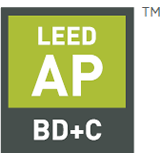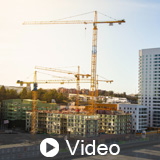In this course we describe how project teams can use Environmental Product Declarations (EPDs) for LEED v4.1 projects. Our team describes the environmental impacts referenced in EPDs and how these impacts may affect the planet and its inhabitants. We discuss how EPDs can contribute to the LEED v4.1 BD+C, ID+C, and O+M ra...
LEED Specific BD+C
48 Online Courses
|
|
The choices we make when specifying building materials can have significant effects on the planet and human health. The world is facing cataclysmic issues such as climate destabilization, pollution, biodiversity loss, deforestation, and greenhouse gases. Construction produces vast volumes of waste and consumes colossal a...
|
|
In the heart of Los Angeles, where the skyline meets the unpredictable forces of nature, a battle is brewing against earthquakes, wildfires, mudslides, and more. As the city grapples with the looming threats of drought, smog, and power grid failures, design professionals are stepping up to create resilient buildings that...
|
|
Protecting wildlife and preserving it for future generations is critical. Our planet desperately needs to be safeguarded, with climate change already wreaking havoc on our natural environment. In this course, we describe how to achieve the LEED v4.1 BD+C Protect or Restore Habitat credit and reduce environmental impacts...
|
|
This comprehensive course equips design professionals with essential knowledge about per- and polyfluoroalkyl substances (PFAS), commonly known as forever chemicals, and their pervasive presence in building materials. You'll discover how these persistent chemicals impact human health and the environment while learning pr...
|
|
Welcome to a journey that will fundamentally challenge how you think about sustainable design. This course pushes far beyond the conventional net-zero checklists that have dominated green building practice for the past two decades. Instead, we're going to explore what happens when buildings become living entities, when c...
|
|
In this course, we explore strategies to improve indoor air quality and how to achieve the LEED v4.1 BD+C and ID+C EQ Low-Emitting Materials credit. In addition, we review the applicable requirements such as (CDPH) Standard Method v1.2–2017. Finally, we discuss how buildings with excellent indoor environmental quality pr...
|
|
Welcome to this comprehensive exploration of Stockholm Wood City, one of the world's most ambitious mass timber developments. This course examines how this groundbreaking project is reshaping urban construction through innovative use of Cross-Laminated Timber (CLT) and other engineered wood products. We'll dive deep into...
|
|
Mass timber is revolutionizing modern architecture, offering design professionals an unprecedented opportunity to create buildings that actively fight climate change while delivering superior occupant experiences. This cutting-edge construction method is transforming skylines from Portland to Stockholm, enabling architec...
|
|
The LEED v4.1 Materials and Resources (MR) credit category focuses on minimizing the embodied energy and other impacts associated with the extraction, processing, transport, maintenance, and disposal of building materials. The requirements are designed to support a life-cycle approach that improves performance and promot...
|

















